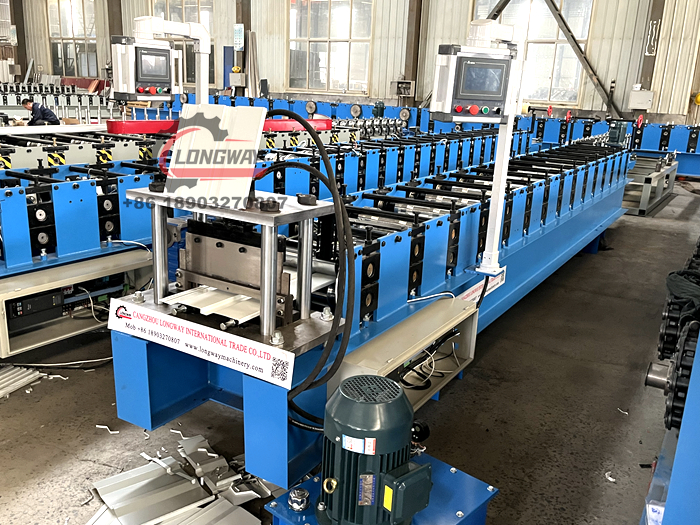cold formed steel machine factories
Cold-Formed Steel Machine Factories Innovation in Manufacturing
The construction and manufacturing sectors have increasingly turned to advanced materials and innovative processes to enhance productivity, reduce costs, and improve structural integrity. Among these advancements, cold-formed steel (CFS) stands out due to its numerous benefits, including high strength-to-weight ratio, resistance to rust and corrosion, and flexibility in design. This article explores the significance of cold-formed steel machine factories in modern manufacturing, focusing on their processes, advantages, and future potential.
Understanding Cold-Formed Steel
Cold-formed steel refers to steel sections that are formed at room temperature, utilizing various processes such as bending, rolling, and pressing. Unlike traditional steel, which is hot-rolled and often heavier, cold-formed steel is produced in thin sheets that can be shaped into a multitude of configurations. This method contributes to its lightweight nature while preserving impressive structural properties.
The distinct manufacturing process of cold-formed steel starts with high-quality steel coils, which are cut to length and then passed through forming machines. These machines utilize rollers and dies to shape the raw material into desired profiles, such as C-sections, Z-sections, and channels. The resulting products are widely used in a variety of applications, from residential buildings and commercial structures to bridges and warehouses.
The Role of Cold-Formed Steel Machine Factories
Cold-formed steel machine factories play a pivotal role in the manufacturing ecosystem. They integrate sophisticated technology and machinery designed specifically for the production of cold-formed steel components. Some advanced features of these factories include
1. Automated Production Lines Many modern cold-formed steel factories utilize automation to streamline production. Automated machinery can rapidly transform raw coils into finished products, enhancing efficiency and reducing human error.
2. Precision Engineering Cold-formed steel machine factories employ skilled engineers and advanced computer-aided design (CAD) software to ensure that each product meets stringent quality standards. Precision is paramount in applications like construction, where safety and durability are critical.
3. Customization One of the significant advantages of cold-formed steel is its adaptability to a variety of design requirements. Factories can efficiently produce customized sections tailored to the specific needs of clients, which is particularly beneficial for bespoke construction projects.
cold formed steel machine factories

4. Sustainability Practices As industries become more environmentally conscious, cold-formed steel factories often incorporate sustainable practices. The steel itself is recyclable, and many factories focus on reducing waste during production and implementing energy-efficient processes.
Advantages of Cold-Formed Steel
The rise of cold-formed steel in construction and manufacturing can largely be attributed to its numerous advantages
- Cost-Effectiveness Cold-formed steel is generally less expensive than traditional steel due to lower material costs, reduced transportation expenses (thanks to its lightweight nature), and faster assembly times.
- Strength and Durability Despite its lightness, cold-formed steel possesses remarkable tensile strength, meaning structures made from it can withstand significant loads without failure.
- Design Flexibility With various profiles available and the ability to customize sections, architects and engineers can exploit the design versatility of cold-formed steel to create innovative and aesthetically appealing structures.
- Reduced Construction Time The lightweight nature of cold-formed steel allows for easier handling and installation, leading to shorter construction timelines and diminished labor costs.
The Future of Cold-Formed Steel Machine Factories
As the demand for more efficient, sustainable construction methods grows, the future of cold-formed steel machine factories looks promising. Continuous advancements in technology, including artificial intelligence and machine learning, will likely enhance productivity and precision in manufacturing. Moreover, with an emphasis on green building practices, the use of cold-formed steel is expected to increase, as it aligns with sustainable development goals.
In conclusion, cold-formed steel machine factories represent a significant advancement in the manufacturing sector. By leveraging the benefits of cold-formed steel, these factories contribute not only to improved structural integrity and design flexibility but also to sustainability and cost-effectiveness. As industries evolve, the role of cold-formed steel will undoubtedly expand, shaping the future of construction for years to come.
-
Roof Panel Machines: Buying Guide, Types, and PricingNewsJul.04, 2025
-
Purlin Machines: Types, Features, and Pricing GuideNewsJul.04, 2025
-
Metal Embossing Machines: Types, Applications, and Buying GuideNewsJul.04, 2025
-
Gutter Machines: Features, Types, and Cost BreakdownNewsJul.04, 2025
-
Cut to Length Line: Overview, Equipment, and Buying GuideNewsJul.04, 2025
-
Auto Stacker: Features, Applications, and Cost BreakdownNewsJul.04, 2025
-
Top Drywall Profile Machine Models for SaleNewsJun.05, 2025








